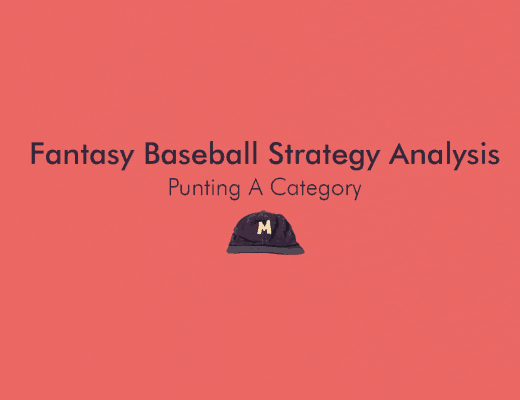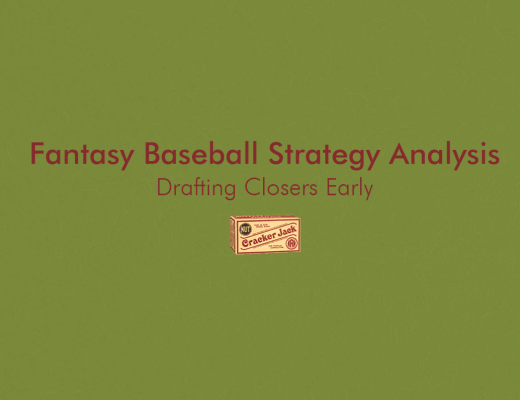When free agents move to new teams or leagues in an offseason, baseball commentators will rant and rave about how this affects a player’s value and, really, it’s a lot of posturing and guessing. Now there has been some actual research done to show what those changes in scenery really mean. It started with a piece within The Hardball Times 2012 Annual by Matt Swartz (which I haven’t read because, well, it costs money) about what happens to free agents after they sign those contracts. Tom Tango dug a little further into it yesterday in his own way to analyze the results and now I’m here to show you how to apply this information towards your fantasy baseball preperations. So, yes, this is an article about an article about an article. That’s meta!
The researched players were broken down into three categories for both pitchers and hitters: free agents who stayed with the same team, free agents who went to a new team in the same league and free agents who went to a new team and switched leagues.
Tango compared these free agents to the standard type of age regression that each player should experience in a three-year window based on his previous research. He found a number of interesting things starting with the simple fact that players who were kept by their original team in free agency were mostly found to follow standard aging regression patterns. He also found that hitters regressed worse than normal in their first year if they changed teams and then they regressed even worse than that in their second year. If they changed leagues when changing teams, the effect was even more harsh (likely because of seeing a whole new league of pitchers).
For pitchers changing teams in the same league, they were worse than usual in their first year with a new team and experienced horrendous regression compared to normal in their second year. If they changed leagues, their first year was actually better than average (likely due to the benefit of hitters not having seen them before) but they regressed more than expected in their second year.
There could be a number of reasons for this effect and it’s hard to really pinpoint without a lot of guessing. The authors of the original article assume that teams let players go when they have specific knowledge about the player regarding health issues or skill problems. Regardless of the reasons behind the effect, it does seem to exist.
Here are some of the players that I could come up with who have changed teams in the past few years via free agency (let me know if I missed anyone):
- Jason Bay – 2010 – New Team, New League
- Chone Figgins – 2010 – New Team, Same League
- John Lackey – 2010 – New Team, Same League
- Adrian Beltre – 2011 – New Team, Same League
- Carl Crawford – 2011 – New Team, Same League
- Adam Dunn – 2011 – New Team, New League
- Cliff Lee – 2011 – New Team, New League
- Victor Martinez – 2011 – New Team, Same League
- Carlos Pena – 2011 – New Team, New League
- Jayson Werth – 2011 – New Team, Same League
- Hiroki Kuroda – 2012 – New Team, New League
- Prince Fielder – 2012 – New Team, New League
- Albert Pujols – 2012 – New Team, New League
- C.J. Wilson – 2012 – New Team, Same League
The 2010 players all bring up bad emotions when you see their names. The same can mostly be said for the 2011 players aside from Cliff Lee (a pitcher who changed leagues). Yet, the 2012 players are ones that many of us are excited about so perhaps a little bit of caution should be exercised with them.
First and foremost, the research tells us that these 2012 players will likely regress a bit more than expected this year (except for Hiroki Kuroda perhaps since he’s a pitcher in a new league). The hitters (Pujols and Fielder) are going to new leagues and could suffer a bigger regression than expected. Also, keep in mind that the 2011 players may continue to regress more than expected so you should consider avoiding them too, including Cliff Lee. As the research showed for pitchers, the first year in a new league can deliver better than expected results but the regression in the second year is a bit more harsh so he might take a step backward this year.
Since the media shines the spotlight on big names who change teams and leagues, it’s easy to think that additional headlines means that they deserve special attention in your drafts. You must avoid that hype. Much like their original teams knew something about these players, you have some inside information on them and now you can also use that to your advantage.



